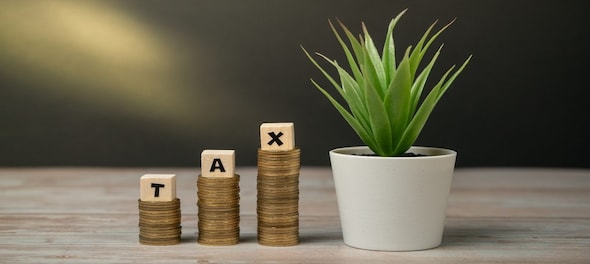
Any profit or gain that arises from the sale of a ‘capital asset’ comes under the category ‘income’, and hence individuals are required to pay tax for that amount in the year. This is called capital gains tax and it needs to be taken care of while filing income tax return (ITR).
Live TV
Loading...
The two types of capital gains tax are — short-term capital gains tax (STCG) and long-term capital gains tax (LTCG).
Now, let's understand the calculation of tax on short term and long term gain from sale of assets:
Short-term gain/loss
Short-term capital gains are taxed as per the income tax slab rates applicable to the individual.
For instance, if the short-term capital gain is Rs 6 lakh and the person falls in the 30 percent tax bracket, then he/she has to pay 31.20 percent on Rs 6 lakh, i.e. Rs 1,87,200, said Archit Gupta, Founder and CEO, Clear while speaking to CNBC-TV18 digital.
"Gain/loss from the sale of the asset is calculated by deducting the cost of purchase, cost incurred for improvement of the asset and expenses incurred exclusively in connection with the sale from the sale proceeds of the asset," Gupta said.
So, going by the calculation — short term capital gain = sale consideration – cost of acquisition- cost of improvement (if any) – expenses incurred exclusively for the sale of the asset.
Exception
In the case of a short-term capital gain on listed shares/equity-oriented mutual funds (if sold within a period of one year), it will be taxable at the rate of 15.60 percent (including health and education cess at 4 percent). But in case of sale of unlisted shares, i.e. sale not made through the Indian stock exchange, it will be subject to tax as per the income tax slab rate applicable to the individual.
Long-term capital gain/Loss
Long-term capital gains are taxed at the rate of 20.8 percent (rate including health and education cess at 4 percent) with indexation. Indexation is basically a technique to adjust the cost of the asset according to the inflation index. It will increase the cost and reduce the gains and thereby, tax liability.
ALSO READ | How to file ITR with multiple Form 16
So, under long-term capital asset, the benefit of indexation is available plus the person who falls in the tax bracket of 30 percent also get the advantage of paying the lower tax rate of 20 percent, Gupta told CNBC-TV18 digital.
Long-term capital gains are calculated in the same way as short-term capital gains, but the purchase cost and cost of improvement are replaced with the indexed cost of acquisition and indexed cost of the improvement.
So, the formula is: Long term capital gain = sale consideration –indexed cost of acquisition- indexed cost of the improvement (if any)-expenses incurred exclusively for the sale of the asset-exemption u/s 54, 54F, 54EC if any availed.
The calculation of indexed cost can be done with the help of the following formula:
Indexed cost of acquisition = cost of acquisition * cost inflation index of the year of sale
Cost inflation index of the year in which asset was first held by the seller or 1981-82 whichever is later should be mentioned.
Indexed cost of improvement = cost of improvement * cost inflation index of the year in which improvement took place
Cost inflation index of the year in which improvement cost is incurred should be mentioned.
First Published: Jul 27, 2022 11:18 AM IST
Check out our in-depth Market Coverage, Business News & get real-time Stock Market Updates on CNBC-TV18. Also, Watch our channels CNBC-TV18, CNBC Awaaz and CNBC Bajar Live on-the-go!


BJP replaces Poonam Mahajan with lawyer Ujjwal Nikam for Mumbai North Central Lok Sabha seat
Apr 27, 2024 7:53 PM
Meet Amritpal Singh, the separatist leader contesting Lok Sabha polls from Punjab's Khadoor Sahib
Apr 27, 2024 7:18 PM

